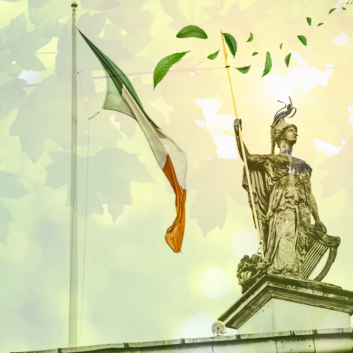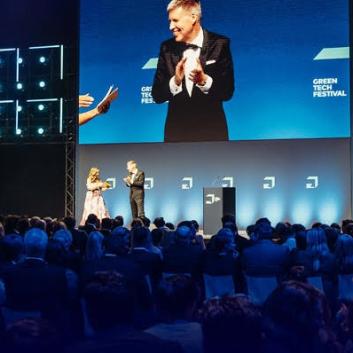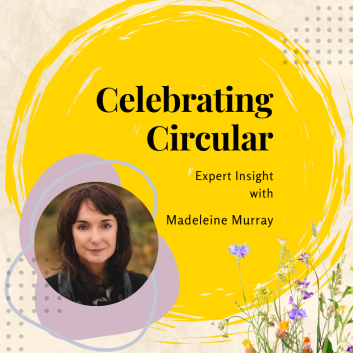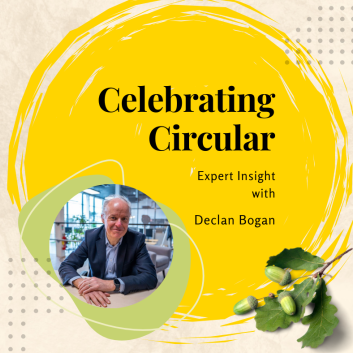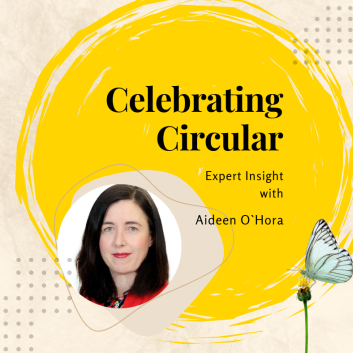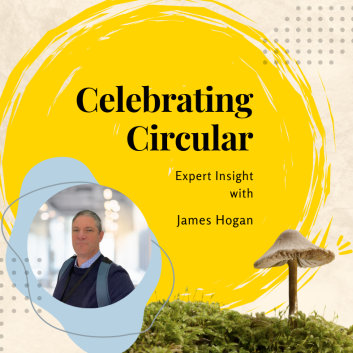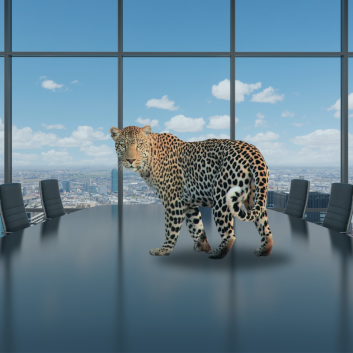Opportunities in creating a new business as usual
The following is a summary of the ‘Creating A New Business As Usual’ panel discussion from the Responsible Innovation Summit 2020.
Experts on the panel discussed how best can we use the power of innovation and collaboration to create a better economy that works for business, people and the planet. The session was moderated by Mary Mac Sweeney, Deputy Head of Enterprise and Economic Development at Dublin City Council.
Mac Sweeney opened the discussion by asking Agnieszka Sznyk PhD, President of the Board, Institute of Innovation and Responsible Development (INNOWO) in Poland, about the advantages of a circular economy.
“Circular economy is the future, it's knocking on our doors. It’s a ‘must have’ for businesses because resources are scarce, and we have to think about how we can lead our businesses in a smarter way.
One of the biggest advantages of this concept is that it allows small and medium enterprises to be more competitive with the big corporations,” Sznyk explains.

She used the company MUD Jeans in Holland as an example of how a smaller innovative company can lead the way by becoming sustainable using Circular Economy principles.
Back in 2013, Mud Jeans launched an initiative where customers could lease a pair of jeans for a year and then either swap or keep the jeans. Just recently, Levis have started a similar concept in partnership with Ganni.
Sznyk believes that this circular approach in business is not only good for the environment but can also be economically profitable.
One of the challenges that smaller businesses and organisations face is measuring their impact.

Dr. Diarmuid Torney, Associate Professor, School of Law and Government at Dublin City University (DCU), shared his experiences about the university’s participation in a voluntary disclosure process.
According to Torney, last year Dublin City University (DCU) was the first university in the world to voluntarily disclose their emissions under their Carbon Disclosure Project (CDP) framework.
“It’s quite a challenging task to gather that data. The fascinating thing from the data complied was that only a quarter of DCU’s emissions come from energy,” Torney explained.
He went on to say that the remaining emissions came from construction and transport (commuting and procurement) and though it’s difficult to measure these aspects, they are a huge contributory factor.
Mac Sweeney asked Neven Marinovic, President of Euclid, The European Network for Social Enterprises and Impact-Driven Leaders, if the social enterprises that he works with focus mainly on their climate impact or their social mission?
Marinovic explained that a holistic approach is encouraged, where either of these approaches can be a force for good, by supporting and having a positive impact on all the challenges we are facing, be it environmental, energy, health or social.
He believes adopting a common sense approach to sustainability in business will appeal to leaders, who may be wary of what they think as ‘new’ ideas.

“It would be essential for all of us to find a common denominator in how we measure impact because I think a lot of problems come from the fact that people outside of our bubble cannot actually understand what we are talking about and what is behind it,” Marinovic explains.
Overcoming barriers to new ways of thinking is work that Josephine Nzerem is familiar with.
As Regional Director of Ashoka Anglophone West Africa and Director at Venture and Talent, Ashoka Africa, Nzerem is used to challenging dated cultural beliefs to promote equality and innovative thinking.
She believes that people represent the barriers, and you must look at why they see change as a problem. Once you understand that, then you can design a system that works for everyone.
When you solve problems on a material level without dealing with the root problem, it will come back again, but once you identify the root cause, only then you can design a solution to tackle it.

“Another thing you have to do is to make your message as simple as possible. Because when people understand it, they will run with it.
If it’s ambiguous and you are talking over their heads, they won’t be able to join you,” Nzerem explains.
Co-creation and collaboration are also key, she believes, in spreading and ‘championing’ your message.
Sznyk believes that persistence and bravery is required in leadership to change the ‘business as usual’ attitude.
“If we see the target, if we see the goal, if we want to make a change, we have to be persistent, because it’s not an easy way to go and we will have a lot of barriers, a lot of obstacles. But if we don’t give up too easily, we will reach it finally.”
According to Marinovic, the traditional style of leadership needs to be replaced by a new mindset.
“We need systems where we can all co-create, strive and move forward. A part of that is education, a part is methodologies, and another part is promotion and advocacy,” he explains.
“I think we are all on a learning journey.
We constantly realise the challenges we face and no one organisation or sector is going to be able to manage this transition alone, so I think collaborative leadership is crucial.
There is an important role for government in this.
Bottom-up initiatives from citizens, communities, or business aren’t, in my view, going to be sufficient.
We need the government to set the rules of the game.
And we need the government to provide direction, to specify that strategic intent,” adds Torney.
Governments can play a vital role in supporting the new business model in terms of policy and legislation, Torney believes.
“Strategic direction. This is what governments, in respect of climate change, have been trying to do, in recent years by providing targets and frameworks for 2050 or sooner.
But also in the medium term, which is the way of government in communicating to society and business that we are going to get serious about responding to climate change.
It needs to be a combination of incentives and also regulation, and I don’t think voluntary frameworks are always sufficient, there is a role for the strong arm of the state to set the rules for reporting and operation.
Public procurement is one (area) where the government can directly drive the market by setting high standards for that product that itself consumes,” explains Torney.
The new business model should be small, flexible and local with a change that is triggered, according to Sznyk.
“We don’t have to think big and global, I think it’s not working anymore, I think we should focus more on what is around us, in the local societies, and this is where we should build our business,” she adds.

As the session drew to a close, Mac Sweeney spoke with Nzerem about the challenge of bringing a co-creation and collaboration mindset to commercial enterprises, where profit often dictates decisions.
Nzerem believes that local entrepreneurs must have the freedom to show their business partners what local means to them and how it will work because they understand the local context.
“It’s good to fail because when you fail, you see the way you are not supposed to do it.
And when you launch your enterprise, fail fast and start all over again. Look at the systems around you that you have built, and ask ‘what do I need to leverage to make this work better?
It’s time to create a mindset that will recognise and support local ideas and also encourage innovating on a small scale and building up."
Closing remarks from Nzerem on how to inspire change and budding aspiring entrepreneurs to deliver these changes on the ground.









